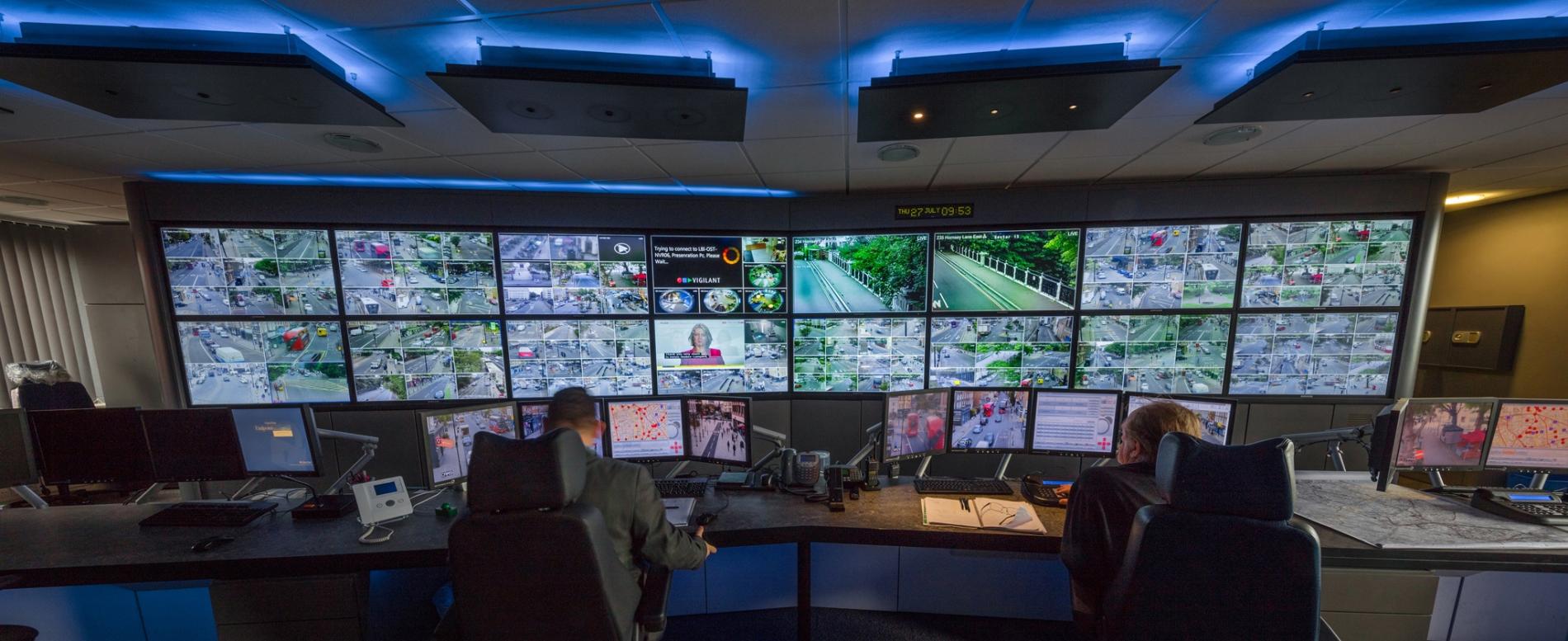Technology and our increasing demand for security have put us all under surveillance. Is privacy becoming just a memory?
In 1949, the British novelist George Orwell published his dystopian masterpiece 1984, with its grim admonition: “Big Brother is watching you.” The concept of “watching” was a quaintly circumscribed undertaking back then. That year, an American company released the first commercially closed-circuit television (CCTV) system. Two years later, in 1951, Kodak introduced its Brownie portable movie camera to an awestruck public.
Today more than 2.5 trillion images are shared or stored on the Internet annually—and that doesn’t count the billions of photographs and videos people keep to themselves. By 2020, 6.1 billion people could have phones with picture-taking capabilities. Meanwhile, in a single year an estimated 106 million new surveillance cameras are sold. More than three million ATMs worldwide stare back at their customers. Cameras hover over roadways to catch speeding motorists or parking violators but also, in the United Kingdom, to track the comings and goings of suspected criminals.
The growing number of people wearing body cameras now includes not just police but also hospital workers and others. Personal monitoring devices—dash cams, cyclist helmet cameras to record collisions, doorbells equipped with lenses to catch package thieves—are becoming a part of many city dwellers’ everyday arsenal. Less quantifiable are the billions of images of unsuspecting citizens captured by facial-recognition technology and stored in law enforcement and private-sector databases.
Those are merely the “watching” devices we can see. The skies are cluttered with drones—2.5 million of which were purchased in 2016 by American hobbyists and businesses. That doesn’t include unmanned aerial vehicles the U.S. government uses to bomb terrorists in Yemen, help stop illegal immigrants entering from Mexico, monitor hurricane flooding in Texas, and catch cattle thieves in North Dakota. Nor does it include the many thousands of airborne spying devices employed by other countries, including Russia, China, Iran, and North Korea. We’re also being watched by the more than 1,700 satellites that monitor our planet. Meanwhile, our smartphones, our Internet searches, and our social media accounts can be tracked to give away our secrets.
From our partners:
In our February issue, we examine the increasingly intrusive world of surveillance—its benefits, its drawbacks, and what it means for our society now that a modern version of Big Brother has become an inevitable part of our lives.
[button style=’yellow’ url=’https://www.nationalgeographic.com/magazine/2018/02/surveillance-watching-you/’ target=’_blank’ icon=’iconic-user’]READ MORE HERE[/button]















